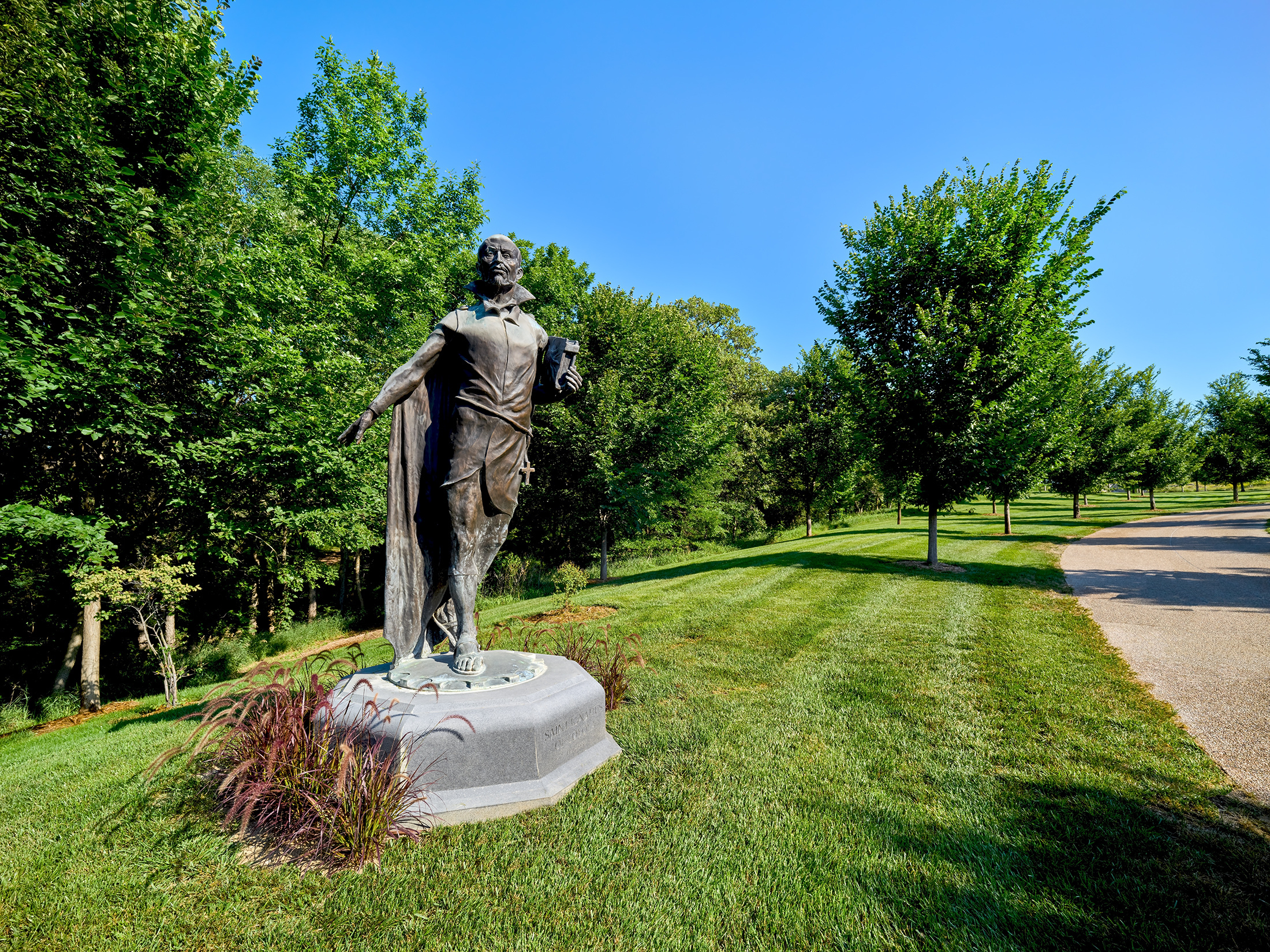The Jesuit theologian Joseph de Guibert pointed out that just as there are many kinds of bridges—truss, suspension, simple, elegant, some built cheaply and others at great cost—so too there are many kinds of spirituality in the Church. Each has its own design and purpose. Franciscan spirituality emphasizes poverty and closeness to the poor. Dominican spirituality centers on study and the preaching of truth. Carthusian spirituality treasures silence and solitude.
What, then, characterizes Ignatian spirituality?
Gene Mertz, S.J., puts it concisely: “At its heart, Ignatian Spirituality is reflection on personal experience in the light of the life death and resurrection of Jesus Christ, under the guidance of the Holy Spirit.” It is a way of reading one’s own life prayerfully, so that God’s invitations may be discerned and answered.
A particularly helpful description of Ignatian spirituality comes from Cardinal Carlo Maria Martini, who once identified the “five actors” always at work in the Spiritual Exercises:
- The one giving the retreat — a companion and guide who proposes points for prayer, but never controls the outcome.
- The one making the retreat — each of us, bringing our desires, questions, and struggles honestly before God.
- The good spirit — the Holy Spirit, who consoles, enlightens, and strengthens us in our response to Christ.
- The bad spirit — those temptations, confusions, and false consolations that seek to draw us away from God’s call.
- All those praying for us — the wider Church, friends, family, and fellow believers who intercede and hold us in their prayer.
Together these five actors remind us that Ignatian spirituality is never a solitary project. It is a dialogue, shaped by companions on the journey, and by the movements of grace and resistance we experience within.
Saint Ignatius insisted on beginning this dialogue with charity. His “Presupposition” teaches us to put the best interpretation on another’s words, to assume goodwill, and to “maximize agreement” in conversation. This approach, rooted in humility and respect, guided the Jesuits he sent to the Council of Trent, whom he instructed to practice openness and deference to the better opinion. Listening well—whether to God, to others, or to ourselves—is at the very core of Ignatian spirituality.
The Feast of the Transfiguration, celebrated this month, gives us a vivid image of this spirituality. Peter, James, and John follow Jesus up the mountain. They see His glory revealed, and they hear the Father’s command: “This is my beloved Son; listen to Him.” Ignatian spirituality is nothing more, and nothing less, than a life spent learning to listen: to Christ in prayer, to the good spirit’s promptings, and to those whose prayers carry us along.
Ignatian spirituality, then, is not simply a theory but a lived way of friendship and discernment. Like a bridge, it carries us across uncertainty with trust, rooted in the conviction that God is already at work in every experience of our lives.
By Father William Blazek, S.J. Composed by the author, this reflection was revised and edited with the aid of the AI writing tool ChatGPT.


